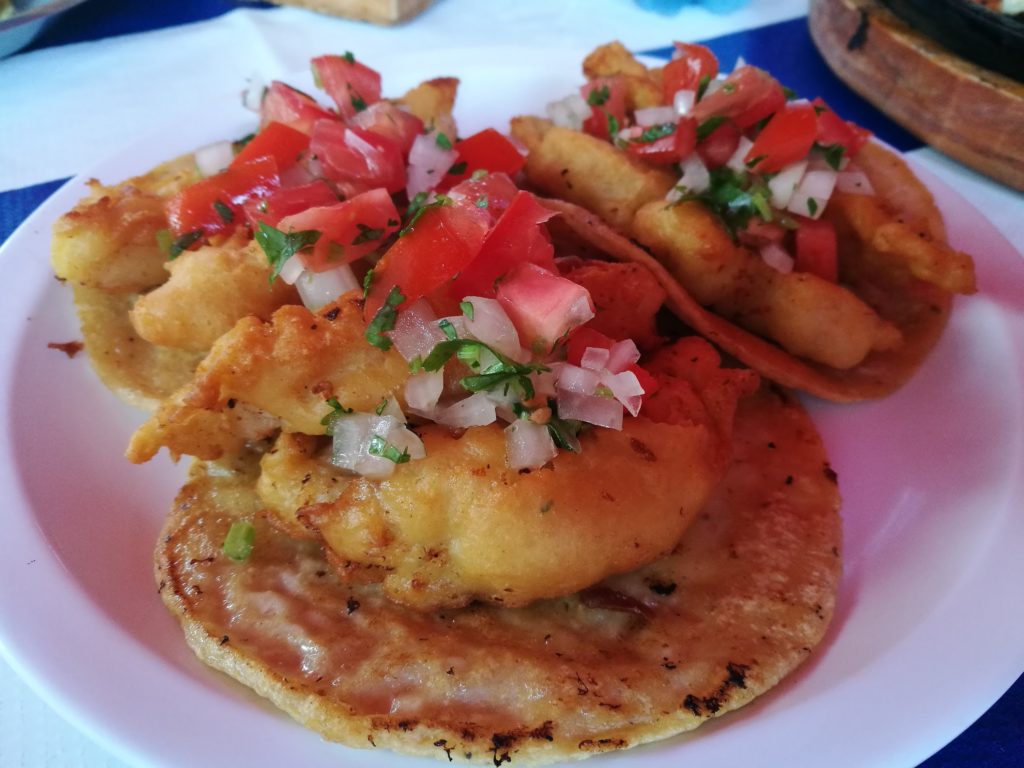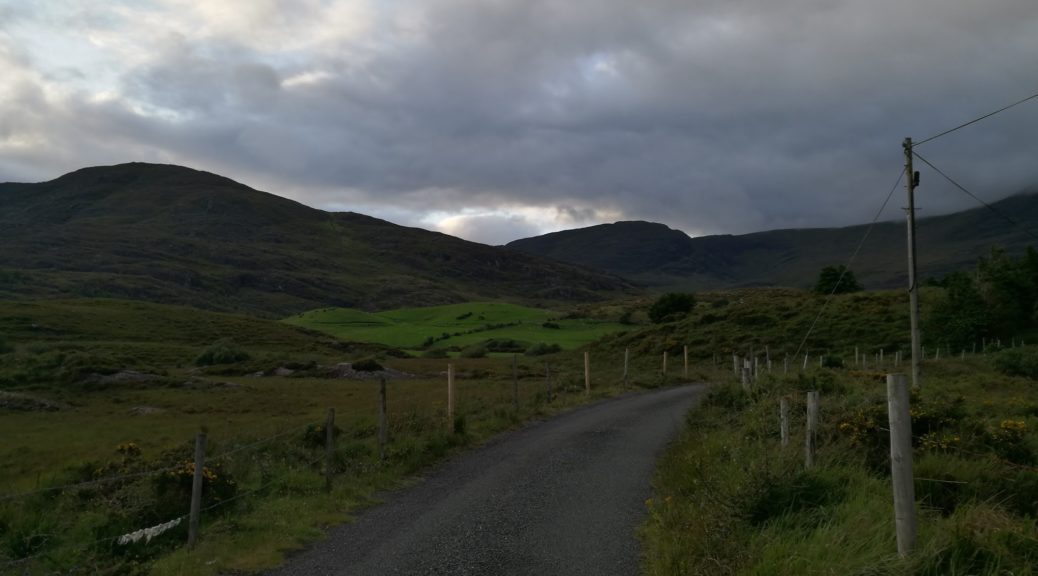My wife Juliann and I recently got caught up on a few of our favorite shows, including Westworld and Homeland, and we’ve been looking for more tasty TV to watch in the “Happy Hour” after our son goes to bed.
We had heard good things from friends about The Americans, so we gave it a try and were quickly hooked. We’re in season two now, and last night we watched an episode that crystallized an idea that had been bugging me for a few days.
Keri Russell’s character Elizabeth, a Soviet spy living undercover in America with her also-spy husband, Phillip, is having an argument with him about the quality of life in America.
“Don’t you like it, sometimes?” he asks, coaxing her to admit that America can be enjoyable.
“It’s easier here,” she concedes. “It’s nicer.”
She fixes him with a steely gaze. “But that doesn’t mean it’s better.”
The Hiiiiiigh Cost of Stateside Livin’
Since we decided to stop traveling full-time I’ve been frequently reminded of how much more expensive it is to not live out of a backpack.
Yesterday morning we finished Braeden’s homeschooling lessons and I sat down to write. I wanted to share my thoughts on the cost of transitioning from a nomad lifestyle, but what emerged were only cold figures: the costs of various goods and services in over a dozen different countries. There was more to it than numbers and I was struggling to put it into words.
Housing here in Savannah is pretty affordable, and it’s definitely cheaper than in the Northeast where we used to live. It’s still much more costly than in South and Central America, Africa, and Southeast Asia.
Transportation costs varied wildly while we were traveling. A rental car in Ireland ran $1200/month, while our total transportation costs in a place like Vietnam were probably around $40/month, and that included taking cabs or Ubers every day.
Check Out – On Choosing a Path
Food is much more expensive here in the U.S. We try to stick to fresh meats, poultry, seafood, fruits and vegetables, and they’re far more expensive here than most anywhere we’ve been. The only clear exception I can recall is Ireland, where it seemed like everything we ate was grown on the farm down the street so the price tag was understandably higher.
[Side note: the food in Ireland was absolutely some of the best I’ve ever had. I used to crack on Irish cuisine, but the joke was on me. As if the countryside, the Guinness, and the whiskey weren’t reason enough to visit.]
The costs of entertainment were also very different from country to country. We spent quite a bit in France, taking tours what seemed like every few days to D-Day beaches, the Calanques, to the summit of Aguille du Midi, and more.
In Cambodia we toured plenty as well but the costs were much, much lower, e.g. around $15 US for a 4-6 hour guided tuk-tuk (they’re called “remorks” in Cambodia) through the Angkor Thom complex.
When we lived on the African island of Mauritius there wasn’t much available in the way of organized tours, which was fine with us. Entertainment consisted of throwing towels in the car and meandering around the island looking for an amazing beach to sprawl out on.
Here in Savannah our entertainment costs are moderate. Juliann and I try to get out for a date night at a nice restaurant once a week, and we’ll take Braeden mini golfing or to the go kart track.

There are other differences that add up to a greater cost of living in the US. Overseas a month at a CrossFit gym would cost from $30-$100, with the overwhelming number of gyms being closer to the $30 end. A battered old “non-CrossFit” gym in Kampot, Cambodia ran me 75 cents a visit.
The only place I can remember paying $100 a month was in Paris, at Reebok CrossFit Louvre. Even the gyms in Ireland weren’t that expensive. Here in Savannah we belong to the excellent CrossFit Steadfast, where the monthly membership for both Juliann and I is $320.
Then there’s the acquisition of “stuff”. When we were on the road there was no question of buying physical goods. If a t-shirt wore out, we replaced it. If Braeden had room in his pack for a Lego set and he hadn’t played with the ones he had in a while, we bought him a new one. That was it. We didn’t purchase souvenirs, kitchen doodads, fashion accessories, or decorative items. I’m not much of a shopper at home in the States, but we rarely, if ever, shopped on the road. We didn’t have the room for anything beyond the absolute minimum, so we didn’t bother.
[Side note: the one exception was blenders. I think we bought three or four blenders in the two years we were on the road, and we gifted each on our departure to whomever we’d befriended during our stay.]
We’ve only been in Savannah two months and already our material footprint seems 50% bigger. It’s not actually 50% bigger. I’m a bit sensitive – my wife would rightly say “oversensitive” – to buying stuff so it feels we’ve bought 3 1/2 tons of new crap in the past few weeks. We haven’t bought that much, but I still feel the weight of every box of Sharpies, of every extra pair of shoes that we bring home. My wife is an angel to put up with me, and I know it.
Check Out – The Ancient Art of Getting Shit Done
If we want something that will provide some comfort, we buy it. We now have a Crockpot. We purchased small table for Braeden’s homeschool and art projects. Instead of recycling my old Surface Pro when I bought a replacement, we’ve kept it for Braeden to use. We have more clothes, kitchen stuff we missed while we were on the road, and other comfort items we would have never previously thought of purchasing because we didn’t want to drag them around. The discipline that we had on the road is no longer necessary, and the mound of “stuff” we own continues to slowly grow.
So buying stuff and settling down in the U.S. is expensive. More importantly, though, The Americans‘s Elizabeth was right. The U.S. is an easy, comfortable place to live. That comfort and ease doesn’t come cheap.
Abroad the cuisine was obviously different wherever we went. Food shopping was always an adventure, and it took weeks to figure out the best places to get the ingredients we wanted. We stayed in over 40 different villas, houses, and apartments during our two years on the road and nearly every single one was furnished top to bottom with Ikea. Ikea seems like a fine company but their products feel neither homey nor comfortable.
At home in the U.S. we’re a 15-minute drive from just about any product we could possibly dream of having. Anything we can’t pick up in a store we can order online and have delivered within 48 hours. Food, clothing, furniture, you name it, it’s available.
It’s comfortable, but not necessarily better, and I know I need to keep that in mind. Comfort and an easy lifestyle are nice, but they’re not the same as living.
And who knew KGB spies were having so much sex? No wonder the Soviet Union fell: their spies were out shagging so much they didn’t have time to get their actual jobs done.

